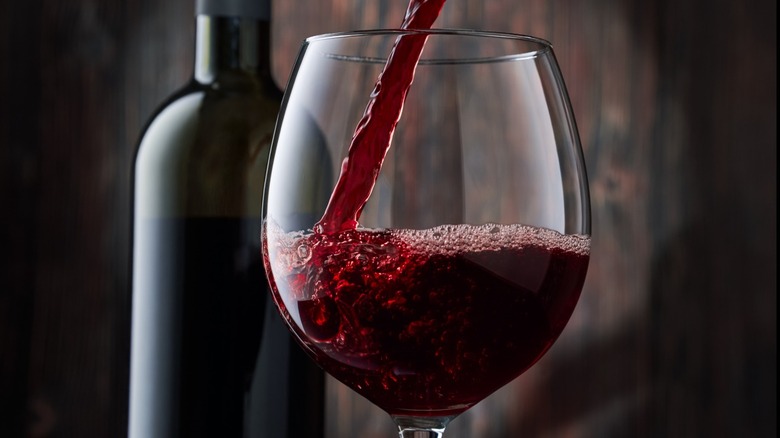What This Aldi Study Reveals About Your Opinion Of Wine
In November 2021, Wales Online reported on the latest project by Charles Spence, the experimental psychologist at the University of Oxford who focuses on the ways we experience food. Aldi had commissioned him to discover how differences in cost and label design affect consumer perceptions.
The results showed that these aesthetic alterations did more to convince testers of the quality or expense of the wine than the wine itself. If the label depicted a chateau, people assumed it was premium wine. Due to that alone, over twice the people deemed a £10 ($13) bottle as the premium bottle than those who suspected it was the £95 ($125) one. Similarly, since people saw the cheaper option as the "premium" one, they were willing to pay more for it than the very expensive wine. Additionally, if the bottle had a cork, people assumed the contents were better than wines that came with screw-top caps.
"This is entirely consistent with numerous previous studies showing there's little relation between liking and price with wines," Spence said. "As the survey indicates that shoppers often use price as a factor in quality, this classic buying behavior can often end up costing customers thousands over a lifetime." In other words, unless you are into wines to a nerdy degree, then you don't necessarily need to splurge for a good bottle. Your host probably won't tell the difference anyway.
The same might go for bacon
People who don't geek out on wine might be smug about what Charles Spence discovered. But, as Food & Wine reported in December 2020, his entire CV seems dedicated to upsetting notions we might have about food experiences. For example, we assume louder chip crunches mean that the can was more recently opened.
This has caused the Irish startup Strong Roots to reach out to him for help with a bacon patch. The Telegraph explains that the patch would work as a scratch-n-sniff sticker that emits bacon smells, thereby making the transition away from meat easier. "Our sense of smell is strongly connected to our ability to taste therefore experiencing food related cues such as smelling a bacon aroma, can lead us to imagine the act of eating that food," Spence explained. "Imagine eating enough bacon and you might find yourself sated."
It's not just the hoity-toity who can be fooled, then. Even potato chip and bacon lovers aren't immune to being tricked by their senses.

